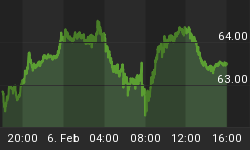Earlier this year, strong public opposition led by several prominent websites forced Congressional leaders to cancel votes on two bills known in Washington as "SOPA" and "PIPA." Both of these bills threatened search engines and websites with possible shutdowns if the Justice Department deemed them insufficiently cooperative with our phony "war on terror," or if they were merely accused of copyright infringement. Fortunately the American public flooded Capitol Hill with phone calls and Congressional leaders dropped both bills.
But we should never underestimate the federal government's insatiable desire to control the internet. Statists of all parties, persuasions, and nationalities hate the free, unbridled flow of information, ideas, and goods via the internet. They resent the notion that ordinary people can communicate and trade across the world without government filters or approvals. So they continually seek to impose controls, always under the guise of fighting terrorism or protecting "intellectual property" rights.
The latest assault on internet freedom is called the "Cyber Intelligence Sharing and Protection Act," or "CISPA," which may be considered by Congress this week. CISPA is essentially an internet monitoring bill that permits both the federal government and private companies to view your private online communications with no judicial oversight--provided, of course, that they do so in the name of "cybersecurity." The bill is very broadly written, and allows the Department of Homeland Security to obtain large swaths of personal information contained in your emails or other online communication. It also allows emails and private information found online to be used for purposes far beyond any reasonable definition of fighting cyberterrorism.
CISPA represents an alarming form of corporatism, as it further intertwines government with companies like Google and Facebook. It permits them to hand over your private communications to government officials without a warrant, circumventing well-established federal laws like the Wiretap Act and the Electronic Communications Privacy Act. It also grants them broad immunity from lawsuits for doing so, leaving you without recourse for invasions of privacy. Simply put, CISPA encourages some of our most successful internet companies to act as government spies, sowing distrust of social media and chilling communication in one segment of the world economy where America still leads.
Proponents of CISPA may be well-intentioned, but they unquestionably are leading us toward a national security state rather than a free constitutional republic. Imagine having government-approved employees embedded at Facebook, complete with federal security clearances, serving as conduits for secret information about their American customers. If you believe in privacy and free markets, you should be deeply concerned about the proposed marriage of government intelligence gathering with private, profit-seeking companies. CISPA is Big Brother writ large, putting the resources of private industry to work for the nefarious purpose of spying on the American people.We can only hope the public responds to CISPA as it did to SOPA back in January. I urge you to learn more about the bill by reading a synopsis provided by the Electronic Frontier Foundation on their website at eff.org. I also urge you to call your federal Senators and Representatives and urge them to oppose CISPA and similar bills that attack internet freedom.















